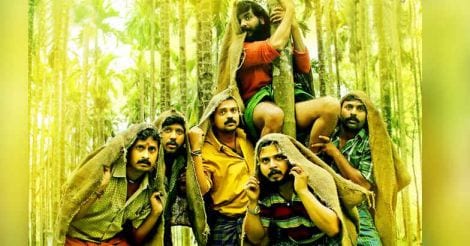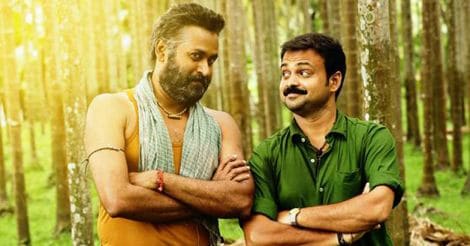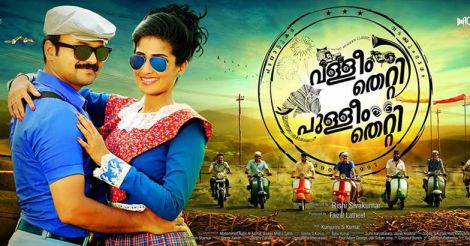When Valliyum Thetti Pulliyum Thetti opened with a sequence of quick vibrant shots seemingly unconnected with one another, one must not have thought that director Rishi Sivakumar would, in the end, come back to those very shots and still maintain the levels of obscurity, puzzling most of his audience.
To start with, yes we got the memo that it’s the retro boom now. And for those keeping scores, this is yet another movie that is placed in an idyllic village, flashing its retro card. There is a village, a temple, temple festival, a theatre that the people of the village hold important, probably next in line after their daily bread, because it’s the only one in the village. And then there are the backstreet boys (90s, right?) cracking schoolboy jokes, budding romance between the unemployed hero and the wealthy girl, and a mashup of the 90s theatricals, all inclusive of a hollering father (Suresh Krishna), a hysterical mother to an unemployed son and a loyal friend who winds up dead for no reason.

In his spare time, Vinayachandran (Kunchacko Boban), the said unemployed youth who spends some of his time helping Madhavan (Renji Panicker), the local theatre owner, either picks up fights with the boys of the rival camp or tries to catch a glimpse of the object of his attraction, Sreedevi (Shamili) made hostage by her father. Although arranged for comedic effect, the trail of events suddenly get on to melodramatic planes that changes the tone of the movie quite unexpectedly.
In this foggy climate, the director sneaks in a line about the colossal damage that globalization effects on businesses and livelihood, which rings much too feeble and lame.

Shamili gets a terrific entry; With Bharathiyar’s ‘Suttum Vizhi Sudar Thaan Kannamma’ playing in the background, it’s an elegant comeback to screen. It also brings to mind the last time the song appeared in a movie (Kandukondein Kandukondein) and Shamili was there in the frame alongside Aishwarya Rai. But the shift feels sloppy; soulful Bharathiyar meets impish romance and not in a good way.
Saiju Kurup, Manoj K Jayan and Krishna Sankar try their best to breathe some life into the flaky screenplay, but to no avail. The actual heroes of the film happen to be cinematographer Kunjunni S Kumar and music director Sooraj S Kurup. The evolution of the film could perhaps be put down to two simple points—the dazzling eye of the camera wielder and the excellent ear of the composer. The director seems to have butt in with little idea of how to fit his elemental story in their mood settings.

While we’re made to see 90s through the film fragments of the era, the film isn’t a convincing picture of the times. And why particularly the 90s, we wonder. Yes, we do get the ‘Arre Tu Chakkar’ number and take it wholeheartedly for the Bollywood craze that had hit the south India during the 90s. But that just wasn’t enough of the 90s. A broken transistor and a Walkman don’t sum up the decade as well.
While it’s lamentable that a good part of being in the 90s in reel time feels unimpressive, the real time invested for this retro crush makes a run for the bigger question.
Onmanorama Rating: 2/5
























